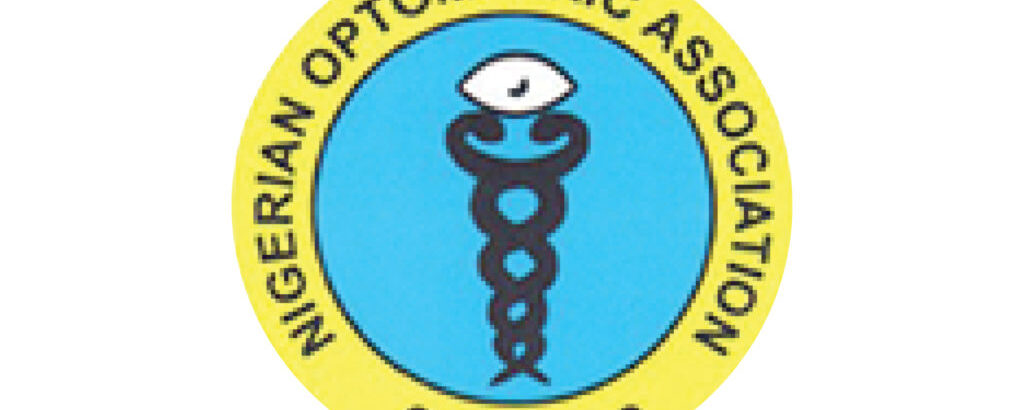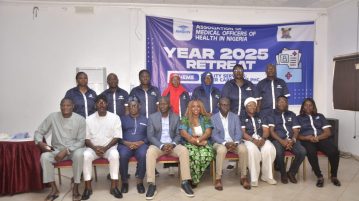Earlier in the year, a man parading as an Optometrist under the organization named “Benjamin Franklin Eye foundation” was arrested by the men of civil defence corps (NCDC) in Kano state. He was arrested on duty while examining and conducting eye tests on unsuspecting public attendees at an Eye care outreach he organized at a private hospital (Name withheld) in Kano.
During this occurrence, members of the Nigerian Optometric Association (NOA) got information of the outreach and went to investigate the qualifications of the team, which was found to be fake. After which, the security operatives were alerted, and they came around to arrest the fake doctor. The fake eye doctor was put behind bars at the station for further investigation and court processes. The case was formally handed over to the police and reports made to the optometrists and dispensing opticians’ regulatory board.
Nigerian Optometric Association (NOA) is the umbrella body for all Optometrists and Doctors of Optometry across the 36 States of Nigeria and the Federal Capital Territory, Abuja.
Lamentably, this incidence is not only limited to Kano but happens in all states across the nation. This, therefore, serves as a caution to private hospitals who provide their premises as a venue for such illegal eye care outreaches, without thorough investigation of the operators or following the due process of approval by professional bodies, regulatory agencies and the ministry. In one instance, a Director of Medical Services in an undisclosed state was the one who approved a “fake doctor” to conduct an eye care outreach in his own community.
Hence, all medical facilities should serve as watch dogs against these fake practices disguising as outreaches, especially in offering their facility for such services. Also, the state ministry of health should be vigilant and collaborate with professional bodies to see that outreach programs are not abused. And as healthcare professionals and eye specialists, we must guard against this unwholesome, unethical and illegal practices to prevent the escalation of eye diseases burden in the community. As mismanaged eye conditions will result in deteriorating effect on the eye, as well as prevent the patient from seeking proper medical attention.
Overtime, outreaches – which are ideally meant to be not-for-profit and an avenue for extending healthcare services – have become hijacked by unqualified persons for illegal provision of eye care services. The primary goal of any legitimate eye care outreach – to patients – should be for screening only and rendering some palliative care, while appropriate referral is made to base clinics for further treatment.
Churches have also been noted to be a major “culprit” in facilitating these unwholesome practices – mostly unknowingly, with the mindset of bringing free or affordable eye care to their congregation. However, it is worthy of note that church premises are not “semi or quasi hospitals or health clinics” to warrant these regular specialised outreaches. Therefore, all religious bodies should also desist from turning their church halls into makeshift clinics or hospitals. And instead have partnerships with base hospitals or clinics, where they’d refer their members to, after screening the credentials of such facilities.
Likewise, poverty is a significant factor in the proliferation of this unwholesome practice. Largely because the survival of this outreach menace is due to poverty, which can readily be addressed by effecting the National Health Insurance Authority (NHIA) and implementing a functional national health insurance program. Hence, all state governments should prioritize healthcare accessibility and affordability, by quickly embracing health insurance and making it work to reduce out-of-pocket payments for healthcare services.
Conclusively, medical facilities, state ministries of health, and professional bodies must work together to ensure that outreach programs are not exploited by fake practitioners. Churches and other religious organizations should partner with reputable hospitals and clinics, instead of hosting and encouraging makeshift clinics in their premises.
Let us work together to protect the health of Nigerians and contribute towards the improvement of healthcare services and outreach programs in our community ~ President, Nigeria Optometric Association (NOA)

About Author:
Dr Chimeziri Anderson is a Fellow and the President of the Nigeria Optometric Association (NOA). A Doctor of Optometry from Abia State University, Uturu; he holds a Masters in Community Eye Health Epidemiology from the University of Cape Town, South Africa and a postgraduate certificate in Global Epidemiology of Non-Communicable Diseases from London School of Hygiene and Tropical Medicine, University of London. Also, a Fellow of the American Academy of Optometry, and Nigeria Postgraduate College of Optometry; he is currently the Chief Optometrists at Benue State Hospitals Management Board and CEO of African Vision Care Relief Organization.



